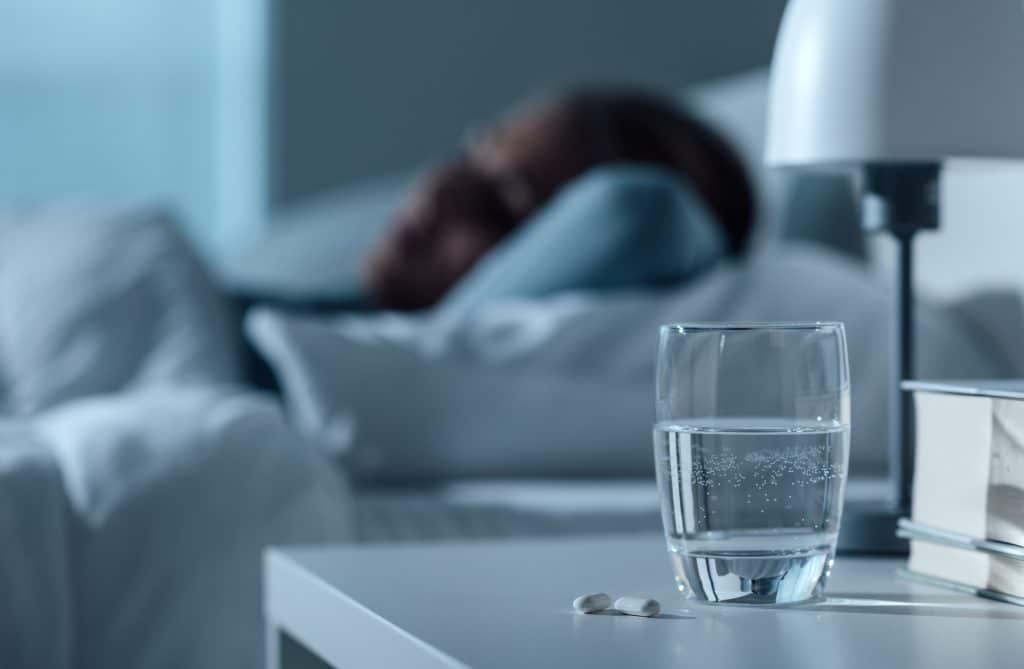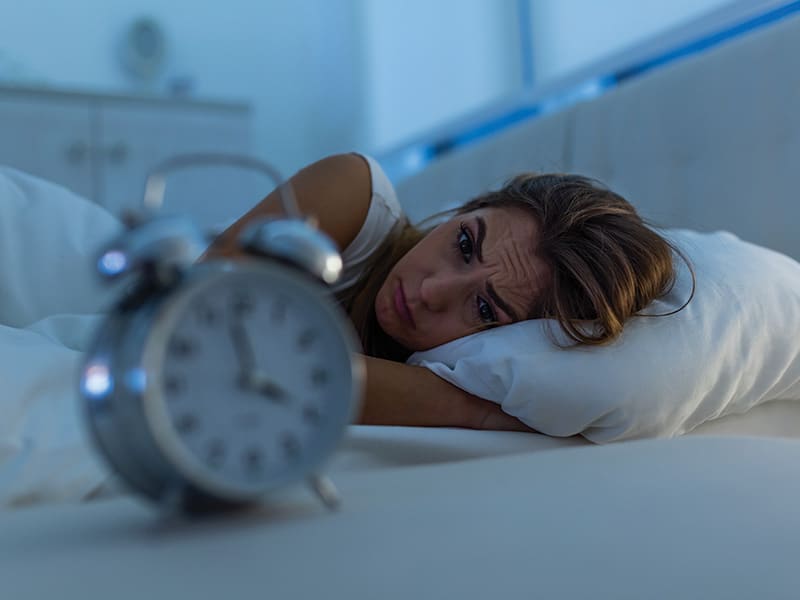A good night’s sleep can be elusive these days, especially amid the daily stress of a global pandemic.
So it’s no wonder more of us are relying on sleep aids, over-the-counter and otherwise, to get the recommended seven to eight hours of shut-eye every adult needs.
Get too little sleep for long enough and there could be life-threatening consequences, most notably to your heart’s health, says Roberto Nieto, MD, neurologist and board-certified sleep specialist on the medical staff at Methodist Mansfield Medical Center.
“When people are sleep deprived, cortisol and other stress hormones can be released,” Dr. Nieto says. “And this could lead to hypertension and other chronic medical conditions.”
But how safe are these supplements and sedatives for nightly use, and could their side effects do more harm than good?
As always, it’s best to talk to your own doctor first before trying any sleep aids. But in the meantime, let’s examine a few of the pros and cons with Dr. Nieto.

ALLERGY MEDICATIONS
For allergy sufferers, over-the-counter allergy medications like diphenhydramine and doxylamine are a godsend. But it’s a side effect — drowsiness — that provides relief for the sleep-deprived.
All those brand names with a “PM” tacked on the end are part of this group, making antihistamines among the most popular options for over-the-counter sleep aids.
The downside: Their “hangover effect” makes you groggy the next day, and they can cause a laundry list of other side effects, from dry mouth to blurred vision.
“Antihistamines can cause older people to become disoriented,” Dr. Nieto says.
What’s more, you can quickly build up a tolerance to antihistamines, meaning the more you take them, the less effective they become.

MELATONIN
Melatonin is a hormone that our bodies create naturally to regulate our sleep/wake cycle. Your body makes less during the day and more when the sun goes down.
While you can add melatonin to your diet (eggs and tart cherries pack the most), it can also be taken as a supplement to help improve sleep without causing a drowsy effect.
“Whenever patients report insomnia, I advise them to start with 10 milligrams of melatonin before bedtime,” Dr. Nieto says.
Research shows that melatonin can help treat jet lag and is often safe for patients with neurodegenerative disorders like Alzheimer’s and Parkinson’s disease. Best of all, melatonin won’t create a dependency, and users don’t build up a tolerance for it.
Just be aware that it can interfere with other medications, and watch out for side effects like headaches and dizziness.

VALERIAN
Native to Western Europe, the perennial valerian has been used for centuries as an herbal remedy. Studies have shown that the root of the flowering grassland plant can reduce the time it takes to fall asleep, although experiences may vary.
Valerian can interfere with prescription drugs and interact poorly with depressants like alcohol, but it’s generally considered to be safe, aside from side effects like dizziness, headaches, and — strangely enough — sleeplessness.
Remember that the contents of herbal supplements are not monitored by the Food and Drug Administration, so be careful and consult your doctor before taking them.

PRESCRIPTION SLEEP AIDS
You’ll also need to consult a doctor if you have exhausted the over-the-counter options and opt for a prescription sleep aid instead.
These medications may help patients doze off easier or stay asleep longer, sometimes both. But each has benefits and risks.
The antidepressant trazodone is one of the safest to use, Dr. Nieto says, because it’s among the least likely to cause a dependency. While it was originally prescribed to treat depression and anxiety, doctors have been prescribing it for sleep-deprived patients for many years.
On the other side of the spectrum is the sedative-hypnotic zolpidem. Dr. Nieto doesn’t recommend this often-prescribed sleep aid because many patients find it difficult to stop using. Other known side effects include sleepwalking, drowsiness, and confusion.
There are several other options to discuss with your doctor, but most of them carry the risk of becoming dependent.
SLEEPING SUBSTANCE-FREE
Sleep medications can be useful for a short time, but relying on them long-term is not the best solution because of the risk of dependency.
Instead, try to identify the cause of your sleeplessness and adopt healthy habits to treat the underlying stress and bring persistent quality sleep back into your life.
- Exercise is a great way to relieve stress. Whether that’s yoga, walking, or jogging for 30 minutes a day, getting to sleep when it’s bedtime may involve a more active lifestyle.
- Limit coffee intake to two cups a day. Caffeine can disrupt our circadian rhythm and delay our ability to fall asleep. It’s also best to skip that cup of Joe late in the afternoon.
- Chamomile tea is a natural remedy that helps combat insomnia and anxiety. Try sipping a cup of tea at the end of the day to relax and soothe the stress away.
- Avoid using electronics during the last 30 minutes of the day. The blue light in phones and tablets can slow down your body’s ability to fall asleep. Dr. Nieto recommends that we keep our phones outside of our bedrooms.
Dr. Nieto finds that chronic insomnia always has an underlying cause, and treating that trauma or stressor should be the first step before medication enters the equation.
“Was there a recent traumatic incident in their life?” he says. “And I’d ask if they are suffering from anxiety or depression.”
It could also be that another medication the patient is taking for an unrelated condition is causing the sleeplessness, he says. Regardless, rooting out the cause is job number one.
“It’s important to delve into what’s the root of the interrupted sleep,” he says, “before I prescribe a sleep aid.”

